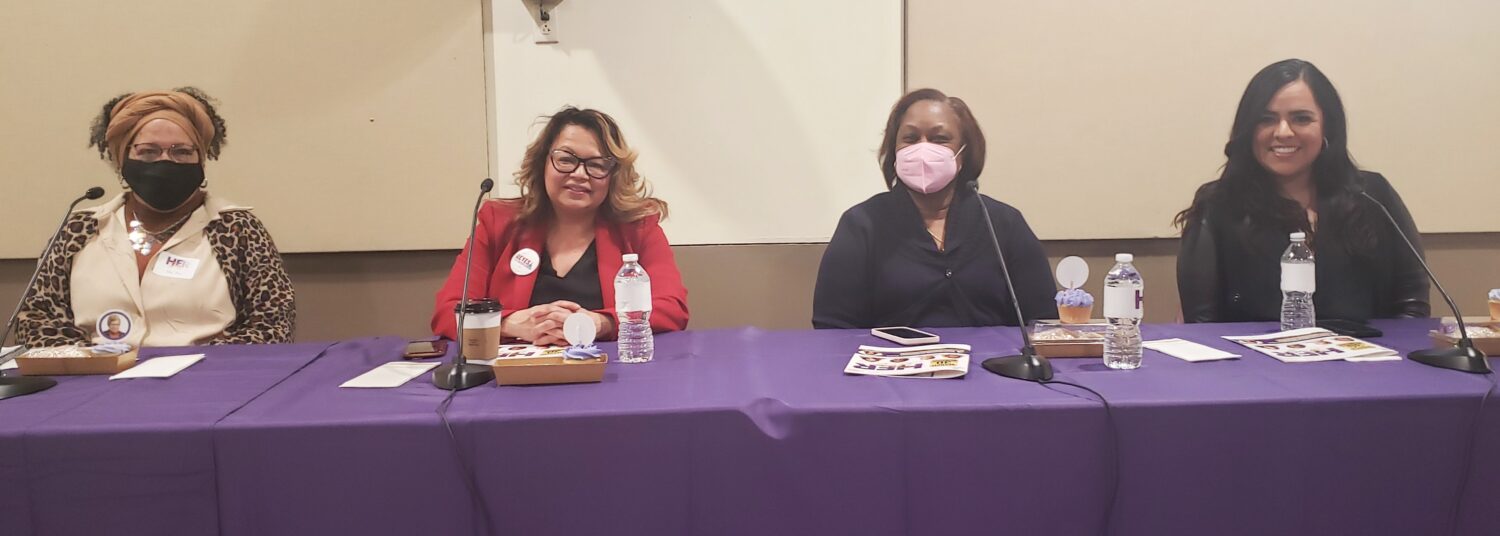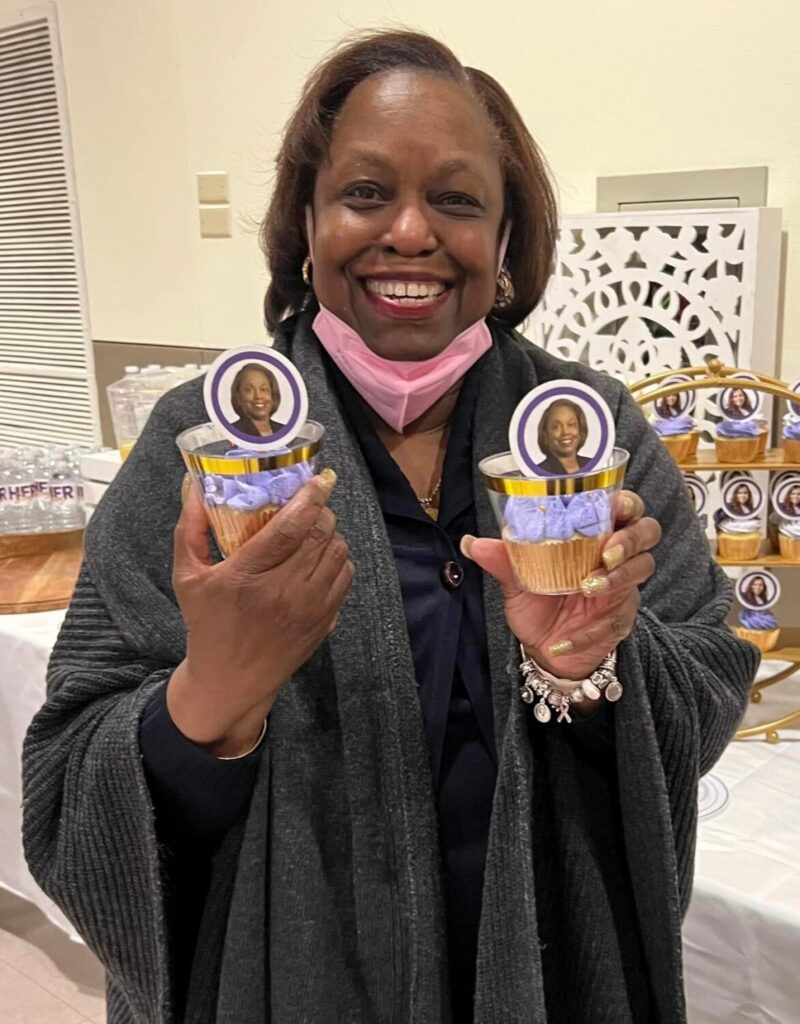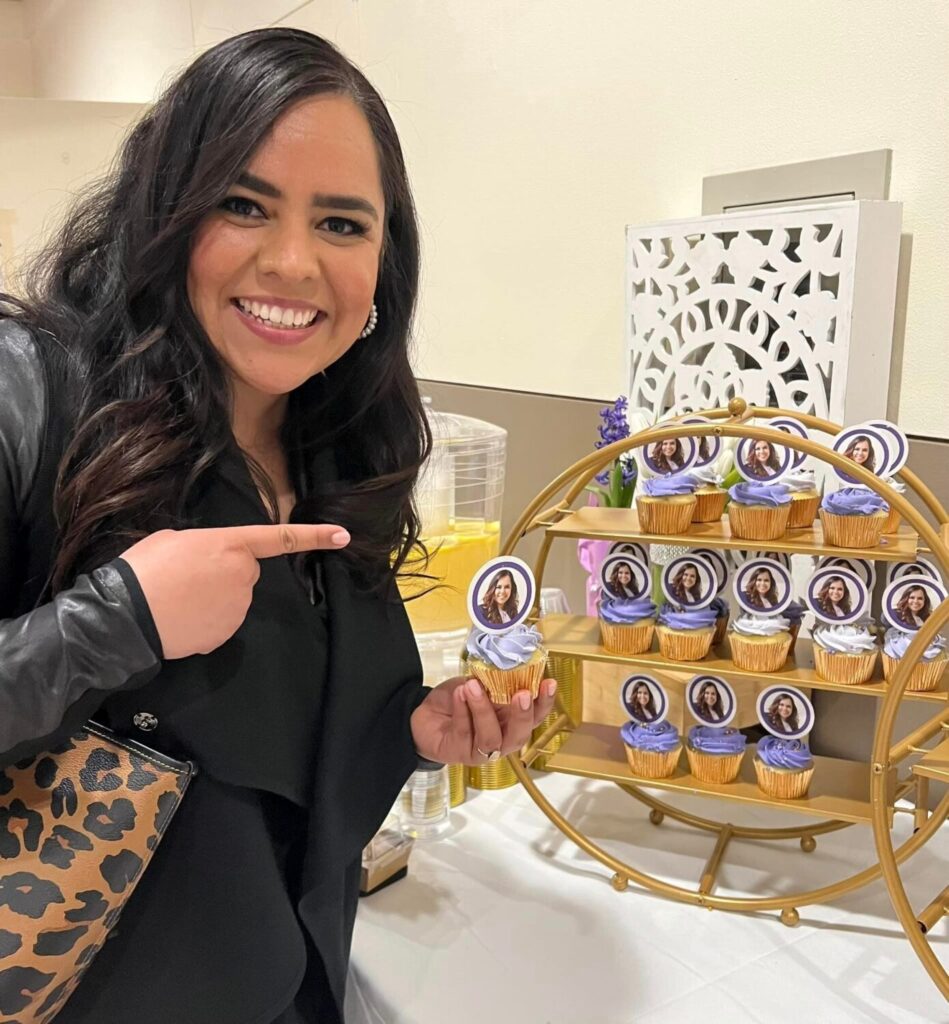
To round out Women’s History Month, NewBridge Madison and Fitchburg Senior Center hosted “HERStory: Four Phenomenal Trailblazers Share Their Incredible Journeys” on the night of March 31 at the Fitchburg Senior Center. The event brought together four inspirational and accomplished women of color from the Madison area to hold a panel and provide the community a chance at insight into their lives and experiences.
The four panelists at the event included Margarita Avila, director of workforce development at the Latino Academy; Frances Huntley-Cooper, Wisconsin’s first elected Black mayor; Pia Kinney James, the Madison Police Department’s first Black female police officer; and Gloria Reyes, the former deputy mayor of Madison and the first Latina elected to the Madison Metropolitan School District school board.
Deana Wright, NewBridge diversity and inclusion manager, moderated the panel. The mission of NewBridge is to provide older adults a bridge to successful aging to ensure longer, healthier, and safer independent lives.
The women on the panel were first asked questions on what guides them, and each panelist spoke about the importance of family and loved ones who have supported them in their journey. Panelists also reflected on their role models and the importance of seeing women in positions of respect doing good work to inspire girls and young women. Kinney James’ experience as the first Black woman in the Madison Police Department in 1975 proved how important such visibility is.

“We have established the Wisconsin Association of Women Police,” said Kinney James, noting the continuing disparities women face in the field. “[It was] an organization established for other women who have struggled through law enforcement. I went to a conference last month, and there was a young lady who was new in a small department, but she was the only female … and she is actually going through some of the same things I went through in the ’70s. That is pathetic. So we offer mentorship, we offer networking and training.”
Fellow panelists also discussed the legacy of women who laid a path for them, as well as using support from women looking to help along the way, and the question of how these amazing women navigate bias and discrimination across power structures was presented. Panelists spoke about the importance of joining with others in the community to fight in solidarity. Perhaps one of the most active panelists in seeking community and taking on a plethora of civil service roles is Frances Huntley-Cooper whose 1991 election as mayor of Fitchburg served as both a historical moment and a manifestation of her push against systems that looked to exclude her voice. On March 8, the Fitchburg Common Council Chambers were officially dedicated in the name of Frances Huntley-Cooper.
“When I moved here, I got more involved, and that’s what helped me to push the envelope. I think social work got me to become comfortable working for public office, but the lawsuits were something that I was involved in because of discrimination back in the day,” Huntley-Cooper said, recalling how shaping her surroundings based on what she saw growing up influenced her to push for progress in Dane County.
“If you can be at the table and set policy, that’s more influential, so that was always in the back of my mind.”
Both Kinney James and Huntley-Cooper gave insight into the triumphs and struggles they experienced in Madison being Black women through the last decades of the 20th century to today. Gloria Reyes, a Madison mayoral candidate, remembered, too, how inspirational and impactful both Kinney James’ and Huntley-Cooper’s work was as someone who grew up in Madison. Reyes spoke to the importance of seeing models for success, but also of making the push to get what you want and deserve, even if you have to work harder than others for it.

“I think every step of the way, in many different aspects of my life, I’ve had to overcome that,” said Reyes reflecting on her experiences of working through doubters and unequal expectations throughout education, work, and politics.
“Being a woman of color, a Latina, people really underestimate you. Right when you walk in, you are battling this sort of perception of who you are supposed to be, and how you’re supposed to act,” Reyes added. “Even growing up, people said I couldn’t be a law enforcement officer because I’m a woman and they had no Latinas on the police force. It’s this constant having to prove yourself and be better … and work harder.”
Of course, there will always be barriers systemically for people moving through power structures and systems set up to favor some and not others. While it can be intimidating and tiring to constantly fight against mistreatment and inequality, panelists all echoed how vital it is to avoid apathy, complacency, or complicity toward the disparities we still face today. Avila specifically spoke to the importance of having faith and perseverance as she shared her story of coming to Wisconsin at 14 years old. Difficulties adjusting to and navigating new environments can both be mitigated by a helping hand, and Avila spoke about how important it is to her to give back by doing the same for others today.
“Try to provide resources, even if it’s one person at a time. I know we’re not going to change the world, but because of what I have faced in the past, I want to make sure that hopefully, little by little, we’re still changing the system,” Avila said, expressing how making opportunities for herself by connecting with the right people helped her overcome some of the same barriers expressed by fellow panelists.
“It’s very sad to hear the stories that you all are sharing, and the same stories that we’re still facing. Never give up,” she continued. “Once again, find support, and if no one is there by your side, go and try to find someone. I think a lot of opportunities and internships that I have been able to take advantage of was because I did it on my own.”
While all of the phenomenal panelists had plenty to discuss for their work and service, a focus was also set on exploring how they care for themselves. All panelists spoke to the rejuvenation that can happen within a community, but also to the importance of recognizing one’s own limits, especially with the expectations of care and nurturing society places on women. It can be worth it to take a break for self-care and prioritizing one’s own needs and Avila echoed the sentiment, reminding the audience that if they have a lot going on, “…don’t feel guilty, it is OK to say no.”
Fittingly, the panel winded down with some questions angled more at fun and entertainment, but eventually circled back around to what we can do to move forward and keep making progress. Panelists ended the discussion highlighting the importance of community, boldness, and perseverance in the continued efforts for equality and equity.



